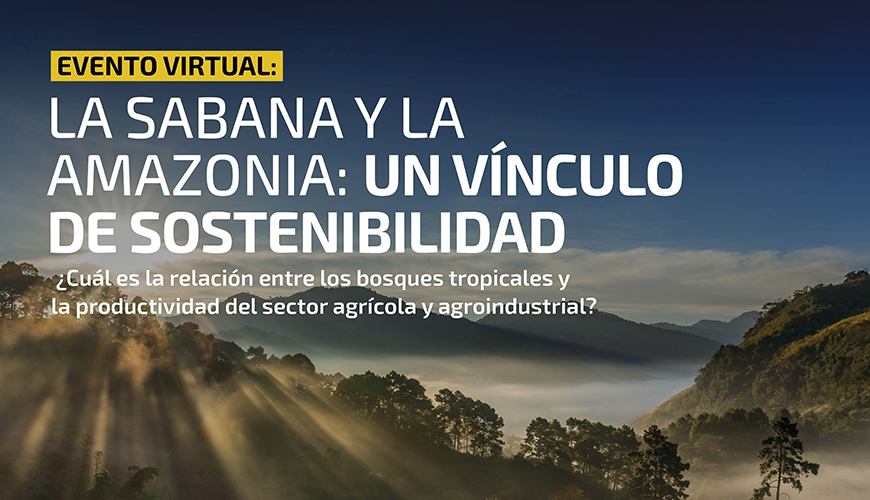With the purpose of bringing the economic sector of the Bogotá Savannah closer to the Amazon, through awareness of the importance of tropical forests and the urgency of stopping deforestation, on May 8 the Interreligious Initiative for Tropical Forests in Colombia held the seminar “The Savannah and the Amazon: a link of sustainability”, in alliance with the Chamber of Commerce of Bogotá.
“IRI-Colombia is our main ally in terms of environmental impact and one of the issues we are going to work on is the relationship between the Savannah and the Amazon,” said Frederick Archila Carabali, coordinator of Productivity and Sustainability of the Bogotá Chamber of Commerce, who welcomed the attendees.
Almost 50 people attended this virtual event – the result of the advocacy process with the private sector that IRI-Colombia has been developing since last year – aimed at agricultural and agro-industrial merchants in the center of the country, affiliated with this important organization in the capital.
The pedagogical meeting included three lectures given by Colombian academics who are experts in biodiversity, climate change and Amazonian limnology.
In the first place, the environmental engineer, master’s degree in engineering and environmental management, professor at the Navarra University Foundation and expert in biodiversity, María Daniela Pulido, presented the conference “What is the Amazon”, where she addressed the nature and geographical and biological structure of this region, a complex system of biomes, fundamental for the supply of water to the cities and municipalities of the Andean area.
For his part, the agronomist, master in Environment, Ph.D. in Tourism, Economics and Management, and member of the research group in Environmental Impact Assessment of the Institute of Environmental Studies of the National University of Colombia, Liven Fernando Martínez, offered a conference on the relationship between deforestation and climate change. In it, he referred to the important role played by tropical forests in the carbon cycle and in mitigating climate change, thanks to their ability to absorb and fix the carbon dioxide they absorb from the atmosphere, as well as their impact on the central region.
Finally, the biologist and master in Biology, expert in Amazonian limnology, Santiago Duque, offered the conference “The ‘flying rivers’ and the virtuous cycle of water: their relationship with the sustainability of the Savannah”. The scientist from the National University of Colombia (Leticia campus) focused on the water wealth of the Amazon and the ‘flying rivers’, a hydrological phenomenon resulting from the evapotranspiration of trees.
thanks to which the Amazon rainforest provides water to a large part of South America. “These only work if the Amazon forest is standing, not the reforested one, but the pristine forest of large, old trees. Each one has the capacity to release more than 1,000 liters a day. In the Amazon we talk about there being billions of trees,” he said.
With this first virtual meeting, IRI-Colombia managed to raise awareness about the critical importance of preserving the Amazon and the Savannah as an integral part of global efforts to address the climate crisis and biodiversity loss. It also hopes that this space will help inspire merchants to take concrete and collaborative action to stop deforestation, restore degraded ecosystems and promote sustainable development that benefits present and future generations.
“This space represents an invaluable opportunity to promote dialogue and action for the conservation of important and highly threatened ecosystems, laying the foundations for a more equitable and sustainable future,” concluded Blanca Lucía Echeverry, coordinator of the Interfaith Initiative for Tropical Forests, IRI-Colombia.


